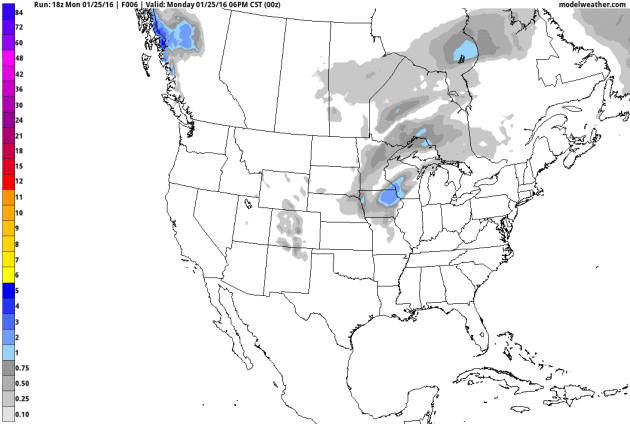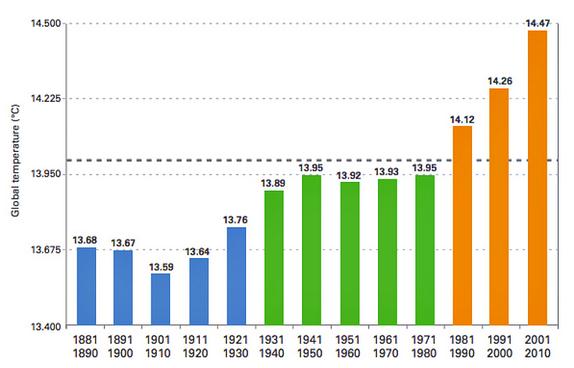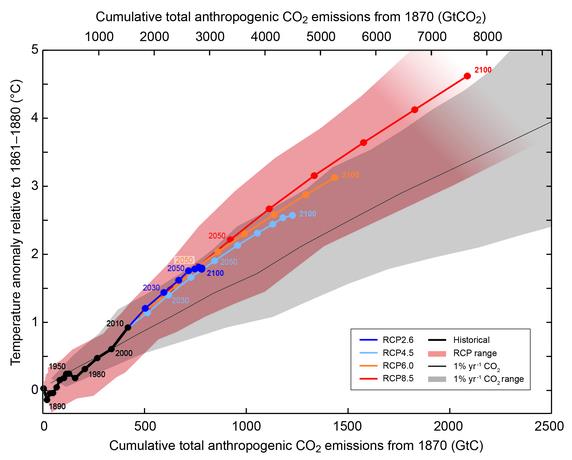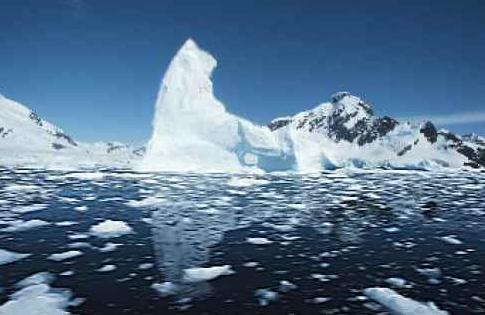24 F. average high on January 25.
35 F. high on January 25, 2015.
5" snow on the ground at KMSP.
- 1.2 F. January is running just over 1F colder than average in the Twin Cities, to date.
Humbling Blizzard Out East - Welcome Thaw Here
On Friday as "Snowzilla" was bearing down on the east coast a producer at NBC News asked me to explain our collective fascination and anxiety about weather. I don't pretend to have the answer key but I have a few theories.
We consider ourselves technologically-advanced, yet nobody has figured out a way to stop a storm. We are powerless in the face of nature. Our hubris does have limits. And a mega-storm is democratic, affecting rich and poor, city dwellers and suburbanites. Storms don't discriminate. They also unite us in a way few other things can.
Superbowl 50 notwithstanding.
Quiet weather lingers into the weekend - no drama brewing close to home, which is standard fare for an El Nino winter in Minnesota. A thaw is likely later this week into the weekend. A Friday slush event is possible, but ECMWF guidance keeps next week's storm south and east of Minnesota. We'll see.
Although the coldest temperatures of winter are probably behind us NOAA's GFS model brushes Minnesota with a few subzero nights by late next week.
A few more numbing temperature relapses? Count on it.

Blizzard Aftermath. Crippling snows from Lexington, Kentucky to the hills of North Carolina to Washington D.C. and New York City - what is impressive is the scope of 2-foot-plus snows. Here's a terrific visible image of the snowy swath left behind by "Jonas", courtesy of UW-Madison CIMSS.
Snowfall Totals. Map courtesy of The New York Times - it's the first time both Washington D.C. and New York City observed over 18" of snow from the same system.
Are We "Juicing" Snowstorms Too? Warmer water = more water vapor, more potential fuel for not only summer thunderstorms but winter storms, especially Nor'easters roaring up the east coast. Here's an excerpt of an interesting article from NASA's Earth Observatory: "...The increase in precipitation doesn’t just apply to rain. NOAA scientists have examined 120 years of data and found that there were twice as many extreme regional snowstorms between 1961 and 2010 as there were from 1900 to 1960...."
Graph credit above: "Increases in global temperature have raised atmospheric humidity". (Graph by Robert Simmon, based on data from the NOAA National Climatic Data Center.)
Snowmageddon Redux. Climate Nexus takes a look at the role of unusually warm ocean water in spiking snowstorms; here's an excerpt: "...Mid-Atlantic sea surface temperatures are currently at a near-record high (at 5˚F to 7°F above average). NCAR scientist Kevin Trenberth attributes up to half of this extra heat to global warming. Extra heat in the ocean and atmosphere fuels storms with more energy and moisture. Global warming—working in tandem with large-scale patterns like El Niño and the warm phase of the Atlantic Multidecadal Oscillation—is linked to the warm ocean temperatures. This storm is being compared to 2010’s “Snowmageddon,” which was also strengthened by warmer waters in the Atlantic (1.5°F/ 3°C) and high sea surface temperature (SST) anomalies in the Pacific, which modified the general flow of the of the atmosphere and affected weather conditions in many parts of the world..."
Oceanic Warming Trend. An estimated 93% of additional heat energy produced by greenhouse gases, mainly CO2, is going into the world's oceans. This not only results in thermal expansion and rising sea levels, but higher water vapor levels, more moisture available for developing storms, especially close to the coast. Graphic above: Larry Hamilton.
NJ.com Users Blast Christie "No Flood Damage" Remarks. Here's a link to the story at NJ.com.
Photo credit: North Wildwood Police Department and Facebook. More from Reuters.
Christie, however, has said the flooding wasn’t as bad as it could have been, as the water began to recede on Sunday morning.
North Wildwood Police on their Facebook page reported a crest of over 9 feet during Saturday morning’s high tide and flooding up to Atantic Avenue on most streets.
North Wildwood Mayor Patrick Rosenello told Philly.com that the flooding was “absolutely worse than Sandy,” and credited early evacuations for helping keep residents from getting stranded in their homes.
Read More: Christie keeps downplaying flooding, says reporter 'making up' criticism | http://nj1015.com/christie-reporter-is-making-up-criticism-about-flood-damage/?trackback=tsmclip
North Wildwood Police on their Facebook page reported a crest of over 9 feet during Saturday morning’s high tide and flooding up to Atantic Avenue on most streets.
North Wildwood Mayor Patrick Rosenello told Philly.com that the flooding was “absolutely worse than Sandy,” and credited early evacuations for helping keep residents from getting stranded in their homes.
Read More: Christie keeps downplaying flooding, says reporter 'making up' criticism | http://nj1015.com/christie-reporter-is-making-up-criticism-about-flood-damage/?trackback=tsmclip
Image credit above: MarcelClemens/NASA/Shutterstock.com.

Photo credit: Craig F. Walker/Globe Staff.
A Question of Environmental Racism in Flint. In case you missed this at The New York Times; here's the intro: "If
Flint were rich and mostly white, would Michigan’s state government
have responded more quickly and aggressively to complaints about its
lead-polluted water? The 274 pages of emails released by Gov. Rick
Snyder this week on Flint’s water crisis included no discussion of race.
Instead, they focused on costs relating to the city’s water supply,
questions about scientific data showing lead contamination and
uncertainty about the responsibilities of state and local health
officials..."
Image credit: Patrick Horton.
TODAY: Early coating, gray sky. Winds: NW 10-20. High: 25
TUESDAY NIGHT: Mostly cloudy. Low: 13
WEDNESDAY: Overcast, trending milder PM hours. Winds: SW 10-15. High: near 30
THURSDAY: Slow clearing, almost pleasant. Winds: NW 10-15. Wake-up: 28. High: 35
FRIDAY: Period of wet snow or mix. Winds: SW 10-20. Wake-up: 28. High: 34
SATURDAY: More clouds than sun, not bad. Winds: SW 7-12. Wake-up: 30. High: 38
SUNDAY: Lingering clouds, thaw lingers. Winds: NW 7-12. Wake-up: 29. High: 33
MONDAY: Sunny spells, turning cooler. Wake-up: 22. High: 27
* Photo above courtesy of Bob and Leslie Ball in Bethesda, Maryland.
Climate Stories...

Graphic credit above: "Historical Northern Hemisphere mean-temperatures (black solid line) along with the estimated natural component alone (black dashed line) and five of the surrogates (colored curves) for the natural component. Temperature departures are defined relative to the long-term 1880 to 2015 average."
Rapid, Affordable Energy Transformation Possible, Study Says. A story at phys.org made me do a triple-take; here are a couple of excerpts: "The United States could slash greenhouse gas emissions from power production by up to 78 percent below 1990 levels within 15 years while meeting increased demand, according to a new study by NOAA and University of Colorado Boulder researchers..."Our research shows a transition to a reliable, low-carbon, electrical generation and transmission system can be accomplished with commercially available technology and within 15 years," said Alexander MacDonald, co-lead author and recently retired director of NOAA's Earth System Research Laboratory (ESRL) in Boulder...
Map credit above: "A high-resolution map based on NOAA solar irradiance data showing one measure of solar energy potential across the United States." Credit: Chris Clack/CIRE.
A
high-resolution map based on NOAA solar irradiance data showing one
measure of solar energy potential across the United States. Credit:
Chris Clack/CIRE
Read more at: http://phys.org/news/2016-01-rapid-energy.html#jCp
Read more at: http://phys.org/news/2016-01-rapid-energy.html#jCp
A
high-resolution map based on NOAA solar irradiance data showing one
measure of solar energy potential across the United States. Credit:
Chris Clack/CIRE
Read more at: http://phys.org/news/2016-01-rapid-energy.html#jCp
Read more at: http://phys.org/news/2016-01-rapid-energy.html#jCp
The
United States could slash greenhouse gas emissions from power
production by up to 78 percent below 1990 levels within 15 years while
meeting increased demand, according to a new study by NOAA and
University of Colorado Boulder researchers.
Read more at: http://phys.org/news/2016-01-rapid-energy.html#jCp
Read more at: http://phys.org/news/2016-01-rapid-energy.html#jCp
The
United States could slash greenhouse gas emissions from power
production by up to 78 percent below 1990 levels within 15 years while
meeting increased demand, according to a new study by NOAA and
University of Colorado Boulder researchers.
Read more at: http://phys.org/news/2016-01-rapid-energy.html#jCp
Read more at: http://phys.org/news/2016-01-rapid-energy.html#jCp

We Just Had The Hottest Year on Record. Where Does That Leave Climate Denial? Cue the conspiracy theories. Here's a clip from The Conversation: "...Enter denial strategy two: that if every scientific agency around the world agrees on global warming, they must be engaging in a conspiracy! Far from being an incidental ornament, conspiratorial thinking is central to denial. When a scientific fact has been as thoroughly examined as global warming being caused by greenhouse gases or the link between HIV and AIDS, then no contrary position can claim much intellectual or scholarly respectability because it is so overwhelmingly at odds with the evidence. That’s why politicians such as Republican Congressman Lamar Smith need to accuse the NOAA of having “altered the [climate] data to get the results they needed to advance this administration’s extreme climate change agenda”. If the evidence is against you, then it has to be manipulated by mysterious forces in pursuit of a nefarious agenda..."
Graph credit: "Satellite data (green) has much more uncertainty than thermometer records (red)." Kevin Cowtan / RSS / Met Office HadCRUT4, Author provided.


Image credit above: "A frontispiece to a tract by German legal scholar Ulrich Molitor in 1489 depicts witches brewing "weather magic." (Los Angeles Times).
.jpg)
Interview with Dr. John Abraham on Renewable Energy and Climate Change. Dr. Abraham at The University of St. Thomas conducted an interview with Green Energy Scotland; here's an excerpt that caught my eye: "...The resistance can be traced to how people view the balance between personal freedom and collective action for the common good. Some people will never support actions to halt climate change or even accept the science because they are afraid that if they accept the science, they will be forced to give up personal freedom. The irony is that had we taken action years ago, the problem would be much smaller than it is now. The longer we wait, the harder it will be to solve the problem...."
File image above: NOAA.
No comments:
Post a Comment